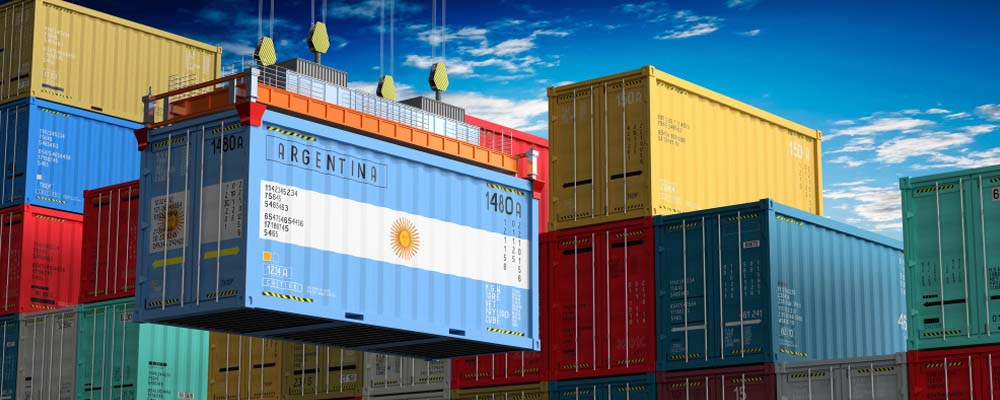
Thinking of expanding your business to Argentina? You’re not alone. With its robust economy and strategic location in South America, Argentina offers a plethora of opportunities for exporters. However, navigating this new market can be challenging without the right information. This guide aims to be your comprehensive resource, covering everything you need to know about exporting to Argentina.
Understanding the Argentina Market
Argentina is the third-largest economy in Latin America, making it an attractive destination for exporters. With a diverse market that spans multiple sectors, including agriculture, manufacturing, and technology, there’s ample room for growth.
Economic Strengths and Opportunities
Argentina’s economy is known for its agricultural strength, particularly in soybeans, corn, and beef. Additionally, the country has a growing tech sector, making it a fertile ground for innovation and startups. Understanding these economic strengths can help you identify where your products or services might fit.
Consumer Preferences and Trends
Argentine consumers are increasingly leaning towards high-quality, durable goods. Eco-friendly products are also gaining traction. By aligning your offerings with these preferences, you can better capture market share.
Competitive Landscape
Knowing your competitors is crucial. Local companies often have the upper hand due to their understanding of the market dynamics. However, international brands are also well-received, especially those offering unique value propositions.
Regulatory Environment
Navigating Argentina’s regulatory landscape is vital for successful market entry. Regulations can vary depending on the industry, so staying informed is key.
Import Regulations
Argentina has stringent import regulations, including product certification and labeling requirements. Familiarize yourself with these to avoid any legal complications.
Compliance and Standards
Compliance with local standards is non-negotiable. Whether it’s health and safety regulations or environmental standards, make sure your products adhere to local laws.
Tariffs and Taxes
Understanding the tariff structure is essential. Argentina imposes various taxes on imported goods, including customs duties and value-added tax (VAT). Plan your pricing strategy accordingly.
 Shipping and Logistics
Shipping and Logistics
The success or failure of your export business hinges on the efficiency of your logistics operations. Understanding the shipping and logistical framework in Argentina is crucial.
Transportation Infrastructure
Argentina boasts a well-developed transportation network, including ports, airports, and railways. Knowing which routes and methods are most efficient can save you time and money.
Freight Forwarding
Freight forwarding companies can be invaluable partners. They handle everything from shipping documentation to cargo insurance, making the process smoother for you.
Warehousing Solutions
Having a reliable warehousing solution is essential for inventory management. Look for warehouses that offer features like temperature control and advanced security measures.
Customs Procedures
Customs procedures in Argentina can be complex. A thorough understanding will help you avoid delays and additional costs.
Documentation Requirements
Ensure you have all the necessary documents, including commercial invoices, packing lists, and certificates of origin. Missing paperwork can lead to significant setbacks.
Customs Clearance
Customs clearance involves several steps, including inspection and valuation of goods. Being well-prepared can expedite this process.
Duties and Fees
Be aware of the duties and fees applicable to your goods. These can vary based on the product category and its country of origin.
 Payment Methods and Financial Considerations
Payment Methods and Financial Considerations
Financial transactions are a critical aspect of exporting. Knowing the preferred payment methods and financial considerations can facilitate smoother transactions.
Preferred Payment Methods
Common payment methods in Argentina include bank transfers, credit cards, and letters of credit. Choose a method that ensures timely payments and reduces financial risks.
Currency Exchange
Currency exchange rates can impact your profitability. Keep an eye on the Argentine Peso’s fluctuations and consider hedging strategies to mitigate risks.
Financial Regulations
Familiarize yourself with Argentina’s financial regulations, especially those related to foreign exchange controls. Non-compliance can lead to hefty fines.
Marketing and Sales Strategies
Effective marketing and sales strategies are essential for capturing market share in Argentina. Tailoring your approach to local preferences can yield better results.
Market Research
Conduct thorough market research to understand your target audience. Tools like surveys and focus groups can provide valuable insights.
Branding and Positioning
Your brand’s positioning in the Argentine market should resonate with local consumers. Emphasize the distinct advantages that set you apart from your competitors.
Digital Marketing
Digital marketing is increasingly important. Utilize social media platforms, SEO, and email marketing to reach a broader audience.
 Customer Service and Support
Customer Service and Support
Outstanding customer service can distinguish you from your competitors. Building a robust customer support system is crucial.
Language and Communication
Effective communication is key. Offering customer support in Spanish can enhance customer satisfaction and loyalty.
After-Sales Service
After-sales service, including returns and warranties, can significantly impact customer retention. Make sure these processes are seamless and customer-friendly.
Feedback and Improvement
Regularly seek customer feedback to improve your offerings. This can help you stay ahead of market trends and customer expectations.
Intellectual Property Protection
Protecting your intellectual property (IP) is vital when entering a new market. Understanding the IP landscape in Argentina can safeguard your interests.
Patents and Trademarks
Registering your patents and trademarks in Argentina can protect your innovations and brand identity. The National Institute of Industrial Property (INPI) handles these registrations.
Copyrights
Ensure your creative works are protected by registering them with the appropriate authorities. This can prevent unauthorized use and infringement.
Legal Assistance
Consider hiring legal experts specializing in IP law to guide you through the registration process and handle any disputes.
Risk Management
Every business venture comes with risks. Identifying and mitigating these risks can ensure smoother operations.
Market Risks
Market risks include economic downturns and changes in consumer preferences. Diversify your offerings to mitigate these risks.
Operational Risks
Operational risks, such as supply chain disruptions, can impact your business. Ensure contingency plans are in place to address these challenges.
Financial Risks
Financial risks include currency fluctuations and non-payment. Using hedging strategies and securing credit insurance can mitigate these risks.
 Sustainability and Ethical Practices
Sustainability and Ethical Practices
Sustainability and ethical practices are increasingly important for modern businesses. Adopting these practices can enhance your brand’s reputation.
Environmental Sustainability
Focus on sustainable practices such as eco-friendly packaging and reducing carbon footprints. This can attract environmentally conscious consumers.
Social Responsibility
Engage in social responsibility initiatives, such as community development and fair trade practices. This can build goodwill and loyalty.
Ethical Sourcing
Ensure your products are ethically sourced. This can differentiate your brand and attract ethically-minded consumers.
Conclusion
Exporting to Argentina offers immense opportunities but comes with its challenges. By understanding the market, adhering to regulations, and adopting best practices, you can successfully penetrate this vibrant market. Remember, preparation is key. Utilize the insights and strategies discussed in this guide to make your exporting venture a success.
For more personalized advice and assistance, feel free to contact our team. We are here to support you at every stage of your journey.




 Shipping and Logistics
Shipping and Logistics Payment Methods and Financial Considerations
Payment Methods and Financial Considerations Customer Service and Support
Customer Service and Support Sustainability and Ethical Practices
Sustainability and Ethical Practices



